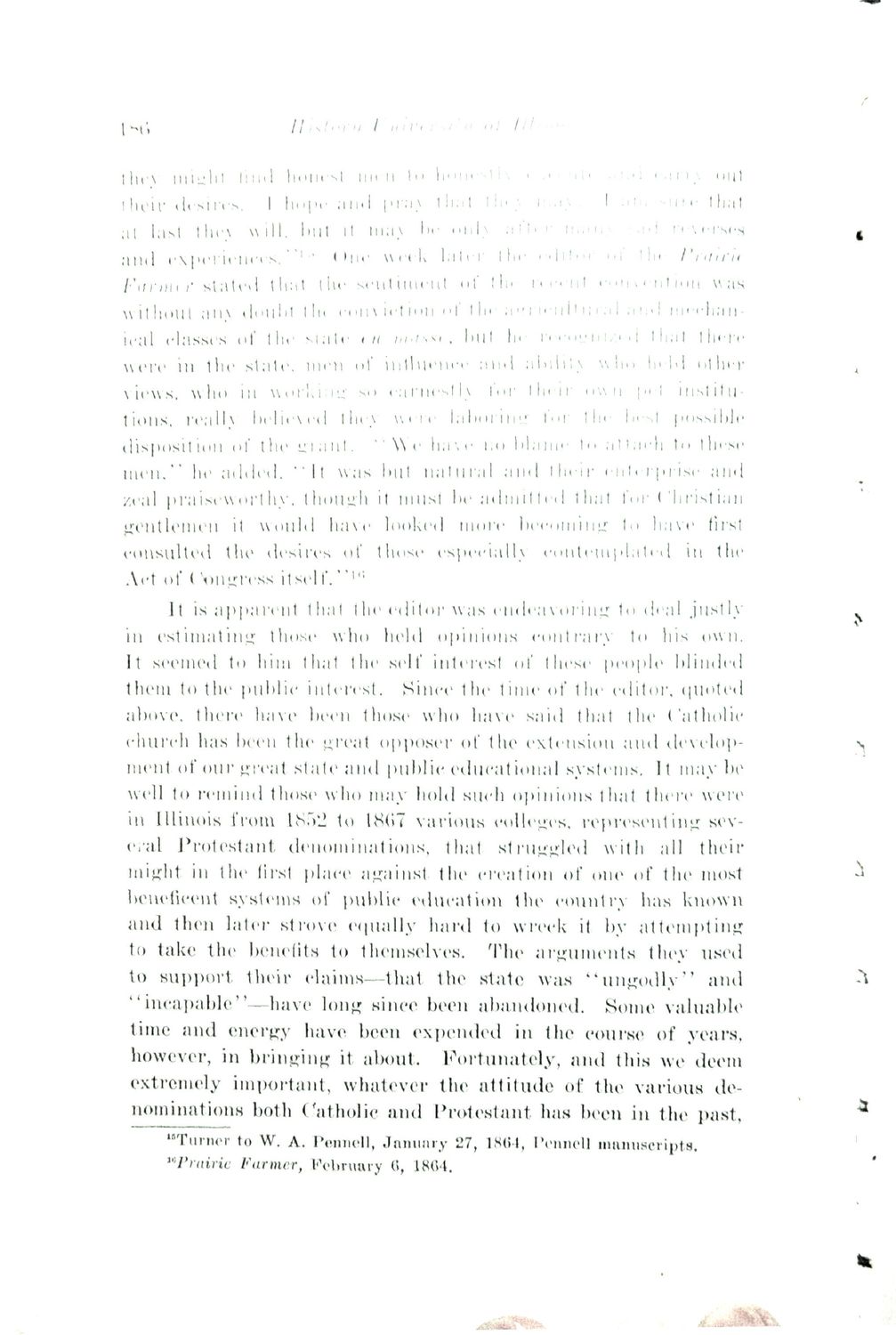| |
| |
Caption: Book - History of the University (Powell)
This is a reduced-resolution page image for fast online browsing.

EXTRACTED TEXT FROM PAGE:
180 History University of Illinois they might find honest men to honestly execute and carry out their desires. I hope and pray that they may. I am sure that at last they will, but it may be only after many sad reverses and experiences/' 10 One week later the editor of the Prairie Farmer stated that the sentiment of the recent convention was without any doubt the conviction of the agricultural and mechanical classes of the state en masse, but he recognized that there were in the state, men of influence and ability who held other views, who in working so earnestly for their own pet institutions, really believed they were laboring for the best possible disposition of the grant. ' • We have no blame to attach to these men," he added, " I t was but natural and their enterprise and zeal praiseworthy, though it must be admitted that for Christian gentlemen it would have looked more becoming to have first consulted the desires of those especially contemplated in the Act of Congress itself.'>18 It is apparent that the editor was endeavoring to deal justly in estimating those who held opinions contrary to his own. It seemed to him that the self interest of these people blinded them to the public interest. Since the time of the editor, quoted above, there have been those who have said that the Catholic church has been the great opposer of the extension and development of our great state and public educational systems. It may be well to remind those who may hold such opinions that there were in Illinois from 1852 to 1867 various colleges, representing several Protestant denominations, that struggled with all their might in the first place against the creation of one of the most beneficent systems of public education the country has known and then later strove equally hard to wreck it by attempting to take the benefits to themselves. The arguments they used to support their claims—that the state was "ungodly" and "incapable"—have long since been abandoned. Some valuable time and energy have been expended in the course of years, however, in bringing it about. Fortunately, and this we deem extremely important, whatever the attitude of the various denominations both Catholic and Protestant has been in the past, M "Turner to W. A. Pennell, January 27, 1864, Ponneil manuscripts. Prairie Farmer, February 6, 1804. ^tfMUS PjitiBikfr
| |